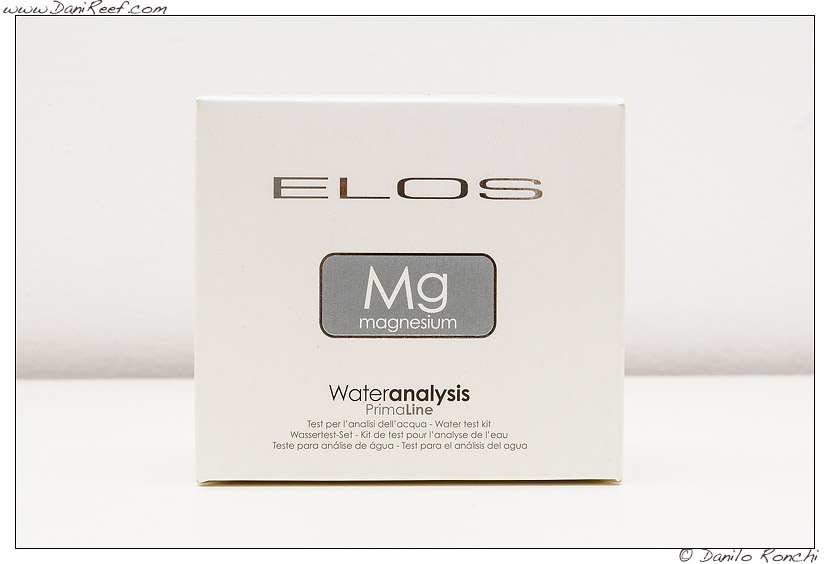
After presenting the Elos test kit alkalinity KH (you can read the article here), today I present the Elos test kit Mg Magnesium.
As you can see from the photo, the test kit consists of a good-sized box that contains the folding paper with explanations, the leaflet, one glass tube with Elos symbol and its plastic cap, three small bottles containing the liquid reagent called A, B, D, a powder reagent C, a syringe and the classic Elos measuring spoon.
The resolution of the test is 50 ppm.
The reagent and the tube are contained inside a plastic bag.
Unfortunately, when they thought about the box, they did it slightly too low, so the “A” reagent bottle can’t stay standing but must be inserted horizontally.
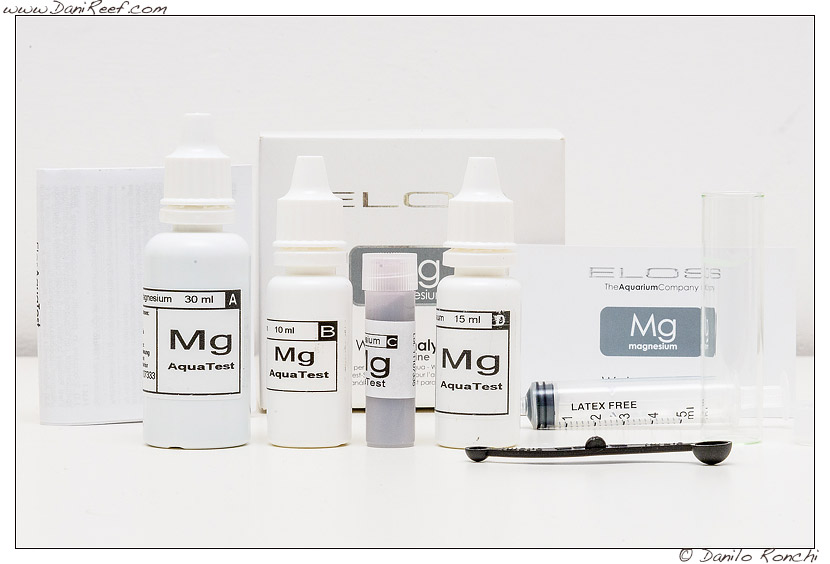 The test is not so simple, so read carefully how to proceed.
The test is not so simple, so read carefully how to proceed.
It fills the tube with 3 ml of aquarium water with the excellent syringe provided.
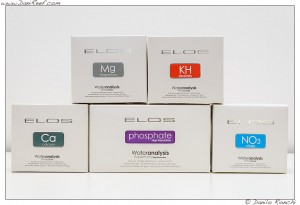 Then it needs to add a drop of reagent from the “A” bottle in the test vial.
Then it needs to add a drop of reagent from the “A” bottle in the test vial.
After swirling the tube gently for 30 seconds we have to observe whether there has been a change in color.
We have to add drops until the color change has occurred towards green from orange. It’s very very easy to recognize colour change when it happens.
This is the first part. We have to remember the number of drops used, we’ll need it after.
At this point we have to empty the test tube, rinse and fill it again with 3 ml of aquarium water.
Then we add 5 drops of liquid reagent from “B” bottle and 0.15 ml of powder from “C” reagent with the small measuring cup provided.
After we begin again to count starting by placing a drop of reagent from “D” bottle in the test vial. We shake the tube gently for 30 seconds and we observe whether there was a change of color.
If there were no changes in the color we have to repeat the previous two steps until a color change occurred in blue from purple.
At this point we need some easy math calculation. We have to subtract this value from number of drops found in the first measurement. The result should be multiplied by 50 to get the actual content of magnesium.
To give a practical example, if we obtained a value of 30 in the first measurement, and a value of 5 in the second measurement, the resulting value becomes (30-5)*50=1250 ppm.
Even for the test of magnesium, such as KH before him, the card does not show a reference color scale, since we are talking about a tritation test and there are no predetermined values.
 One of the most common mistakes in this test is to add reagents “B”, “C” and “D” inside the first test tube filled with green water, with the result to get absolutely nothing except water that will never change color. We must always remember to start again from scratch in a new tube with 3 ml of clean aquarium water.
One of the most common mistakes in this test is to add reagents “B”, “C” and “D” inside the first test tube filled with green water, with the result to get absolutely nothing except water that will never change color. We must always remember to start again from scratch in a new tube with 3 ml of clean aquarium water.
One of the things I like to mark is the dropper of the bottle, that is extremely accurate, and the drops are almost always identical to themselves. Elos claims to use a calibrated dropper, thing we can not verify, but, in any case, the result is great. Of course, sometime it might happen that a drop is filled by air and bangs, but my experience shows me a chance lesser than one drop for every box… I advise you to swirl the bottle before using the reagent.
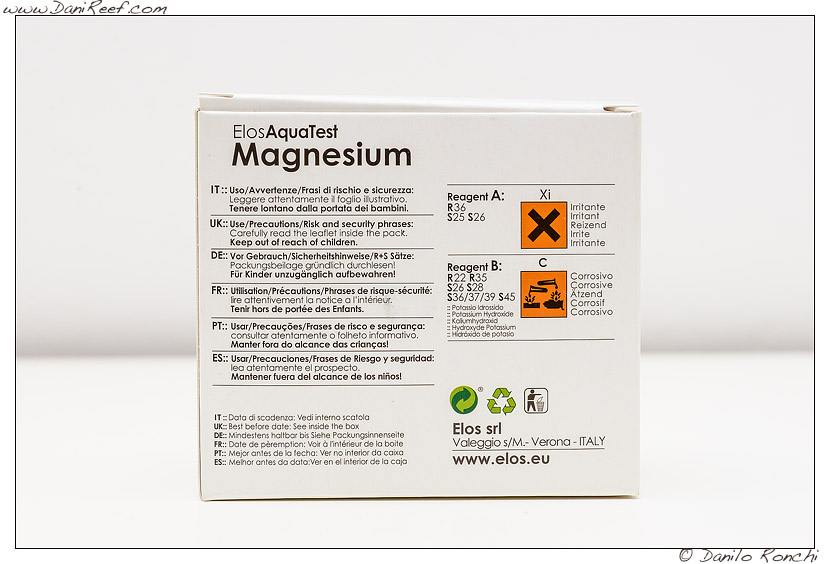 In the back of the box you can read the reagents used, then also listed in the leaflet with instructions for use.
In the back of the box you can read the reagents used, then also listed in the leaflet with instructions for use.
Elos fits the expiration date stamped with the date by which you should open the test, useful to understand if the test kit is good or not.
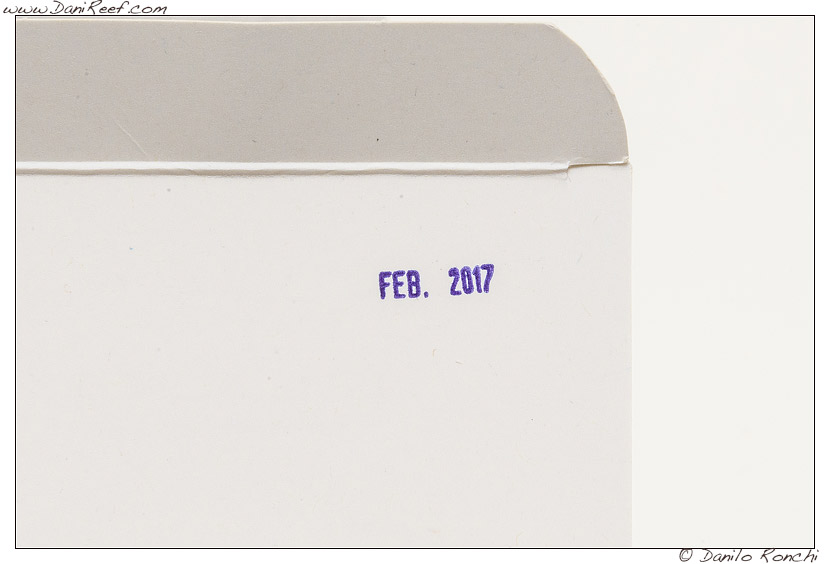 The test is not cheap since it costs 24,28 €, given my experience over time, I can also say results have always been in line with what is in the aquarium, given the many comparisons I’ve done with other tests. And the price is, in my opinion, the only limiting factor in this test.
The test is not cheap since it costs 24,28 €, given my experience over time, I can also say results have always been in line with what is in the aquarium, given the many comparisons I’ve done with other tests. And the price is, in my opinion, the only limiting factor in this test.
I did not detect any significant difference between this test and the ones I’ve used in the past, similar colors as usual and absolutely comparable readings.
Do remember that all tests, although they have a high number of measurements, should be used not more than six months from their first use. Incorrect storage can ruin the reagents and give you false readings.
I recommend you always use your eye to evaluate the aquarium, do not rely only to test, and if the tests were to detect a value clearly wrong, before making any countermeasure would be desirable to do it again with other brands deemed reliable. Of course, an eye should check the expiration date, which is essential for such perishable reagents, especially if exposed to moisture and heat.
In addition to calibrated dropper, that for a titration test is absolutely critical, the mode of packaging and conservation are fundamental for right readings.

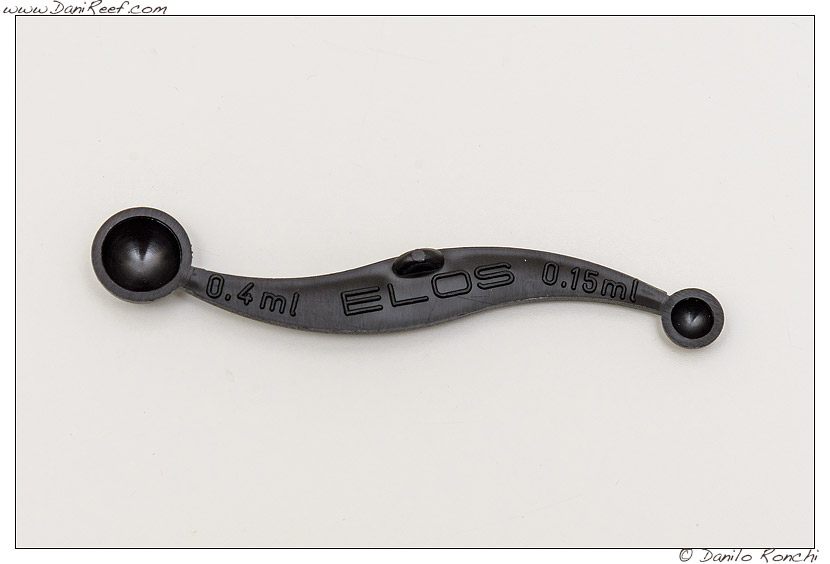









0 Comments